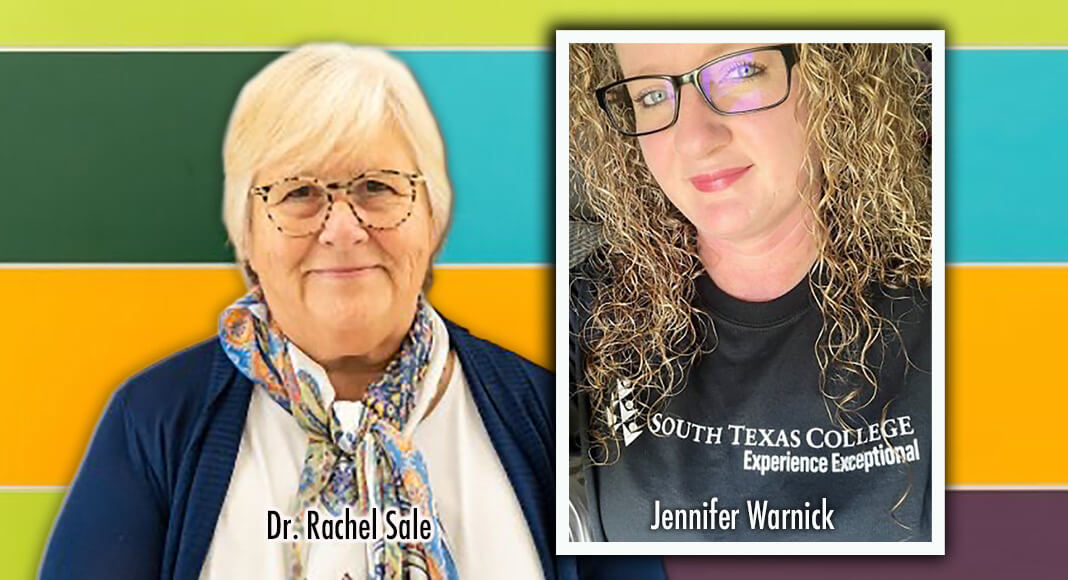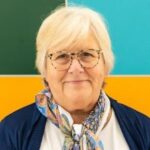
Texas Border Business
MCALLEN, TEXAS – March 2020 was a whirlwind month for educators around the country, as schools suddenly shut down in the midst of the pandemic and had to transition to online learning almost instantly.
“Fortunately, South Texas College had put a number of developments in place just prior to Covid that enabled us to quickly shift to being fully online,” notes Rachel Sale, PhD, director of distance learning. Dr. Sale had the unenviable distinction of arriving on campus just a month before the chaos.
One already-in-place improvement that proved to be invaluable: the instant messenger program Pronto, within the Blackboard learning management system, which allows students to communicate with their instructors in over 30 languages. Spanish and Filipino are just two of the first languages of many South Texas College students, and many military students have spouses who are English language learners.
Jennifer Warnick, a mother of three who returned to school this past fall after 15 years away from the classroom, enjoyed online learning. Between working all day and shepherding her children to sporting events, she found that taking classes on her own schedule was enormously helpful. “The only stressful part was in the beginning when I tried to familiarize myself with the technology and learning to navigate the website,” she recalls, adding, “I do miss the one-on-one time with professors, but the pandemic has shown me I’m getting the same service even though I’m not physically there.”
Changing the Blackboard view to a new view option called Ultra View standardized navigation options across all classes, so students had one less hurdle to overcome when they logged in to a new class. With thousands of new-to-online students, simplifying the way they navigated the system was critical.
South Texas College has policies mandating that instructors be certified when they teach online. Most had no prior experience in teaching virtually, so in order to train hundreds of instructors quickly Dr. Sale and her team developed their own, boot camp version of the regular certification course.
Instructors needed to get up to speed on uploading content and organizing it into modules, displaying textbook chapters according to a calendar, and keeping the electronic grade book up-to-date and accessible to students. They also needed to be aware of the subtleties of online versus in-person learning.
“Visual cues are more difficult over a screen, for example, and there are different techniques to engage students and keep them focused,” she says. Instructors of many of the formerly on-campus courses needed to develop learning content that was available to students virtually.
“While I can’t say enough about the way my own staff met this challenge head on, the collaborative environment here on campus is what kept us all going,” Dr. Sale continues.
Warnick echoes that sentiment. “I ran into some issues because I used my work computer for class, and security issues prevented me from downloading one of the programs. On a few occasions I had login issues and IT came through for me every time. Also, having Dr. Sale’s support was tremendous in keeping my spirits up and focused on graduating. She went the extra mile in giving me continuous encouragement. If I could I would shout from the highest mountaintop how much having the extra support meant to me!”
Between that encouragement and her success in tackling classes and mastering new computer programs, Warnick has found the confidence she needs to complete her degree in business administration. “STC really does care if I succeed,” she says.
Staying Connected
Though Warnick had no issues with Internet connections, many students did. To help them, Lisa Walters, associate dean of library services, applied for a grant to purchase a number of mobile hotspots to give out to students. McAllen displayed a bit of community creativity as well – schools in the area created “hotspot” buses so students could do their work, and many of the shuttered businesses in the neighborhood left their WIFI on and open so students could access it from the parking lots.
“While politicians talk about the digital divide, our students live the reality of it. In our department, next year will include a project focused on mobile applications and access,” says Dr. Sale. “The campus will always be here because we like being around other human beings, but students who were hesitant [to attend classes online] before now realize they can work and manage a family while going to class, because many classes can be asynchronous. And instructors who were hesitant have learned they are actually pretty good at this.”

















